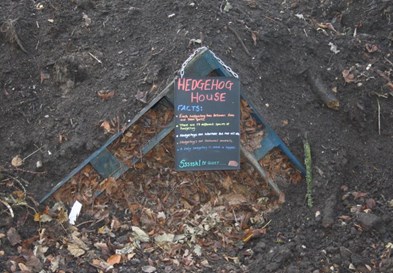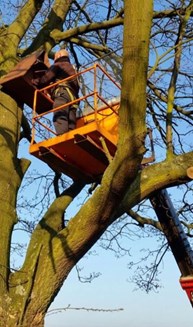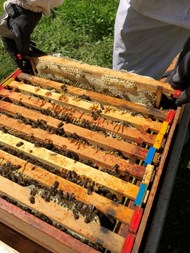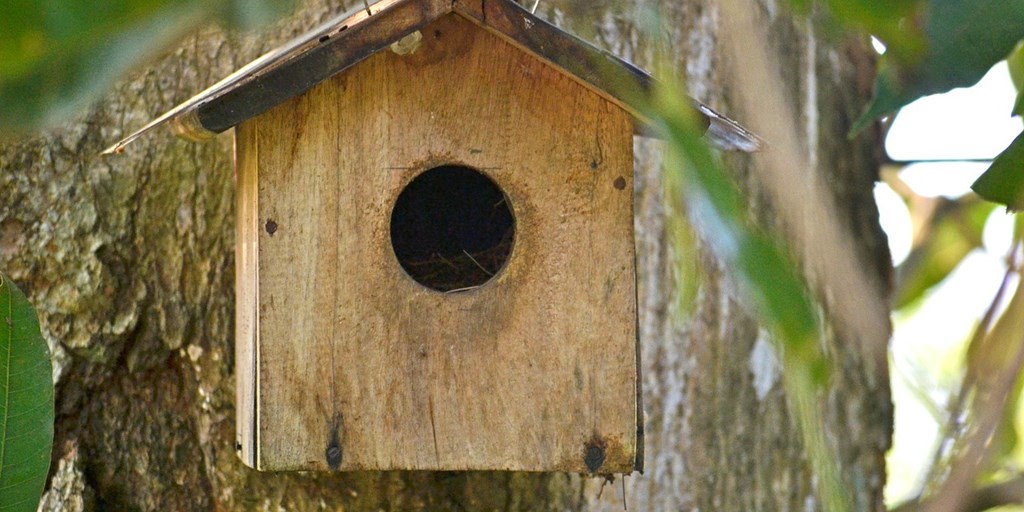The Belfry Hotel & Resort celebrates fauna and flora this World Wildlife Day
By Angus Macleod, Director of Golf Courses and Estates, The Belfry Hotel & Resort
Today (3rd March) is UN World Wildlife Day, which this year is themed "sustaining all life on Earth", encompassing all wild animal and plant species as key components of the world's biodiversity.
This seems like a good opportunity for us to reflect on the varied forms of fauna and flora present here at The Belfry Hotel & Resort, and the initiatives undertaken by our expert grounds management team to support the preservation and development of these species.
There are 2,100 golf courses in the British Isles covering approximately 125,000 hectares of land, which equates to more than 0.5% of the nation’s land area, approximately double the size of the Royal Society for the Protection of Birds (RSPB) reserves, and over four times the area of country parks, meaning courses represent an important sanctuary for wildlife.
As custodians of our wonderful site, we are careful to ensure we act as responsibly as possible when it comes to water use, fertilisation, pesticide use and disposal, and species preservation initiatives, some of which we’ll cover in this article:
Hedgerows, trees and weed management

There are many wildlife species on our grounds, including Muntjac deer, brown hares, voles, mice, stoats, otters, rabbits, foxes, swans, snakes, badgers, and various bugs, as well as hedgehogs for which we have built houses on site.
Hedgerows are important sanctuaries that offer protection to birds, plants, insects, mammals, reptiles, and amphibians by providing food and sites for breeding and resting. At The Belfry, in accordance with the Hedgerow Regulations 1997, hedges are cut once a year - at most twice if really necessary – and always outside of birds’ nesting season (February to August).
Rather than doing this with large machinery, we use a flail as cutting this way promotes thick, dense cover necessary for many of our smaller breeding birds (warbler, finch, sparrow, dunnock) and dormice. Interestingly it is along the knotty growth of the flail-line that you’ll find most bird and dormice.
To preserve and help invertebrates thrive, we plant a lot of native trees and shrubs, which make the best habitats for these species. The common old Bramble is invaluable for invertebrates in providing a food plant and nectar source. Ivy is another good source and, as ivy tends to grow on fallen dead timber, we do not remove it from fallen trees.
There are many species of invertebrates associated with the decay of timber, many of which are very rare, so it’s important to retain a wide range of dead timber in managed woodland for conservation. We do not cut down dead trees in the woods or the woodland edge and they are left where they fall when they naturally come down. We also create log piles to provide additional shelter for reptiles and other invertebrates.
In addition, when staff cut greens and tees, we have a strict weed management policy, which sees the team using a knapsack device to look out for weeds and hand pick them, rather than spraying the whole golf course with chemicals. Grass species selection is also key in reducing environmental impact, so we have selected species that that are less prone to disease and therefore require less management.
Not much of a ‘birden’

Partnering with regulatory bodies and expert wildlife organisations is key to sustaining life on earth. In January 2020, the R&A agreed a new partnership with the RSPB to advise golf clubs on the management of wildlife species and promote best practice to a wide network of golf courses, including The Belfry Hotel & Resort, to support their conservation aims.
The Belfry has a strong relationship with the RSPB, as well as Warwickshire Wildlife Trust and the Barn Owl Project. We have created several bird and bat boxes in trees to encourage nesting and help alleviate the decline in numbers by creating a welcoming habitat for native birds. We have spotted over 50 species of bird on site, including herons, woodpeckers, geese, ducks, kestrels, buzzards, kingfishers, oyster catchers, skylarks, owls and cormorants, which are rare inland. Also, we are home to several species of bat.
We are bee-lievers

Bees play a vital role in the health of our environment. To the rear of the PGA Ping House, there are two hives, consisting of approx. 40,000 honeybees. They provide around 40 kilograms of honey per year, a lighter honey derived in the spring from the rape seed flower and a darker sweeter kind in the summer, both of which are used by the resort’s chef and his team in the kitchen.
In the future, we would like to introduce ‘hotels’ for Bumblebees, which are also in decline, in the Manor shrub beds to help preserve this vital species.
Pest management
The impact of pesticides on wildlife is a major cause of concern in the deterioration of biodiversity. The main pests on our courses are leatherjackets and worms, which very rarely require treatment. We also ensure no roughs are treated with fertiliser or chemicals. Greens are fertilised through a low nutritional programme to encourage the growth of finer grasses. Soil conditions and acidifiers are our preferred choice to maintain colour and increase turf vigour.
The Resort has recognised the need for a separate wash down facility, therefore grounds equipment is now maintained and washed over an oil/water separator, which is great for minimizing pollution. The Belfry recognises the importance of correct storage and usage of chemicals, so we use fully Chemsafe-compliant facilities for this.
The closed loop Waste to Water recycling system onsite minimizes water usage and cross contamination of the reservoir. All excess water utilized by the resort is deposited into a waste treatment plant, where it’s recycled and pumped into lakes. The aerification units on the golf courses keeps lakes clean of algae bloom.
The Belfry’s three courses, including The Brabazon and PGA National, are recognised as some of the top golf courses in the UK and beyond, having hosted the Ryder Cup four times – more than any other venue in the world – and two European Tour events, respectively.
Set within 500 acres of rolling countryside, The Belfry Hotel & Resort is located close to Sutton Coldfield, North Warwickshire. It is just 20 minutes from Birmingham and easily accessible from the M6, M40 and M42, or by train at the Sutton Coldfield or Birmingham International stations.
